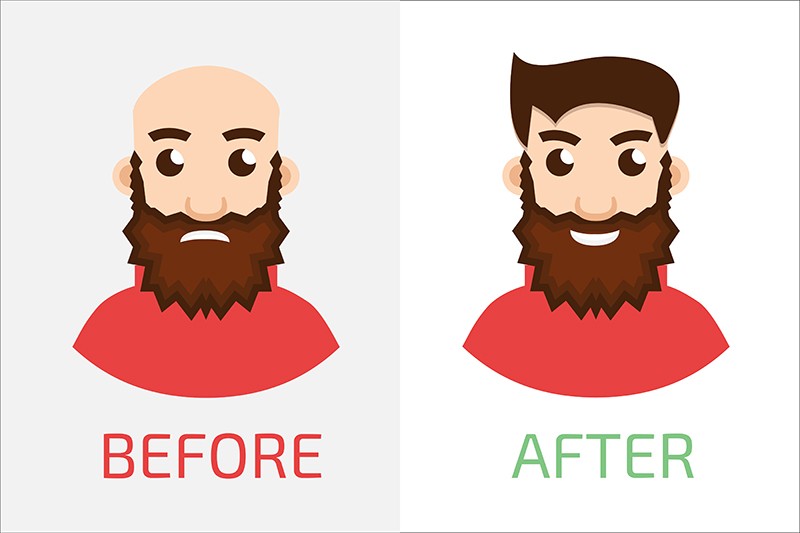


[Related: When can you wear a hat after hair transplant?]
2. Take painkillers if needed If the pain becomes a bit too much, you can take painkillers to control the swelling and soreness. The swelling will persist only for a few days. 3. Stay in room temperature Here's the thing. You need to avoid sweating the first week after the surgery. Extreme hot and cold temperatures need to be avoided as far as possible since your body needs time to get back to how it was before. 4. Do not worry about the scabs After a successful FUE transplant surgery, the areas in your scalp where hairs were implanted will be itchy and even slightly pink. Scabs can develop around these areas, but they will fall off within a few days. 5. Using shampoo and cleaning hair In the first few days after the surgery, use shampoo every day. Here are some of the things that can help. Wash your hair and scalp the morning after the surgery at least three times. - Wash twice a day for one week afterward. - Gently pour the water into the graft areas to clear away the scabbing and crusting. - Take shampoo that your doctor recommends to you, as your scalp would be sensitive. - Massage softly on the affected areas without using too much of pressure. - Some doctors, for instance, advise on using Lactated Ringer's with 5% dextrose. - Baby oil can work wonders too, and it's a good idea to apply them o the scalp even after the scabs fall out. After ten days, you can switch back to your normal routine. Other Things to Note After a month, you can go in for your first hair cut or even dye your hair! In the week after the surgery, some hair might fall off too but don't worry, that's a natural reaction to the hair transplant surgery, Known as thermal shock' it involves your hair falling off. However, the implanted stem cells remain, a reason new hair will soon start to grow in the scalp. Normally, new hair begins to grow in around ten weeks after the surgery, and can be long enough to be groomed in around six months.